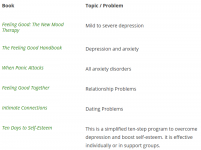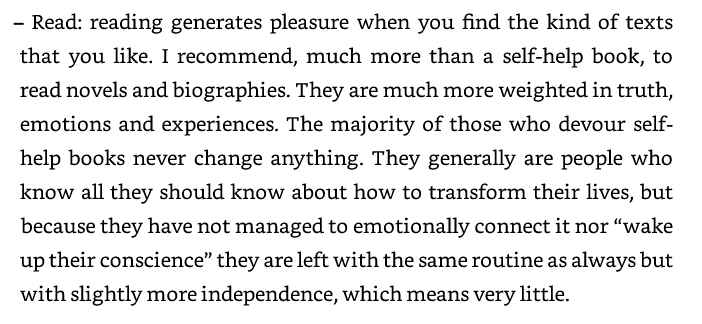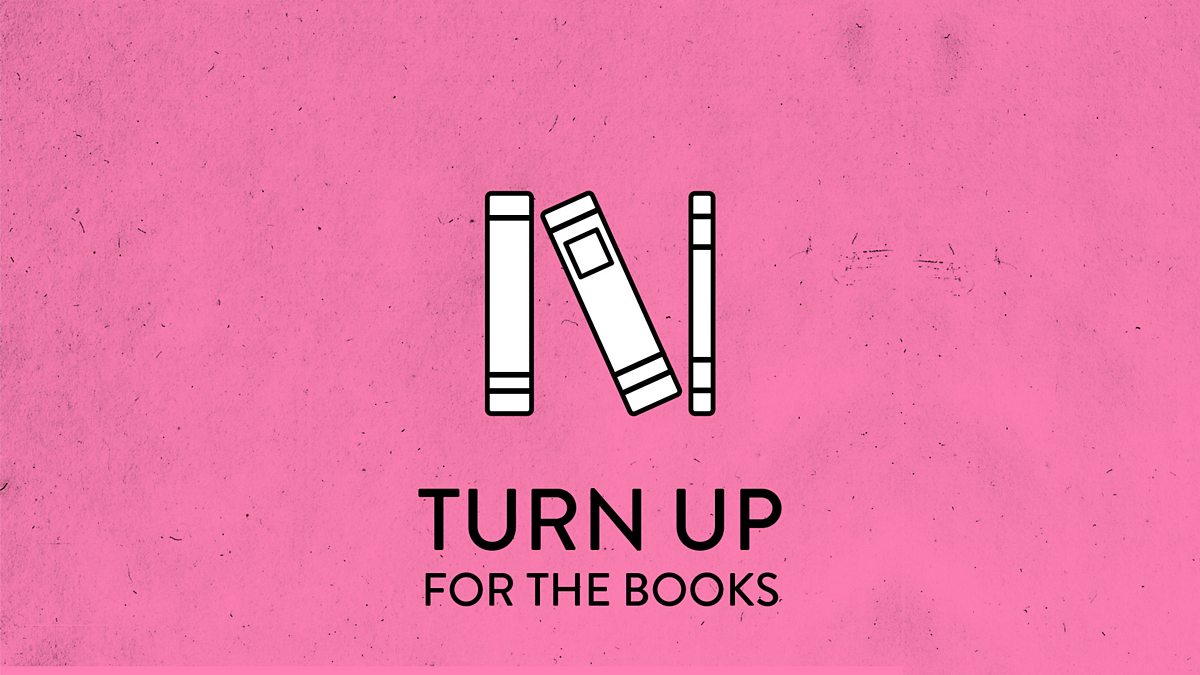Bibliotherapy: Reading Your Way to Mental Health
By KEVIN HELLIKER, Wall Street JournalJuly 31, 2007
A growing number of therapists are recommending something surprising for depressed and anxious patients: Read a book.
The treatment is called bibliotherapy, and it is gaining force from a spate of research showing that some self-help books can measurably improve mental health. In May alone, the journal Behaviour Research and Therapy published two studies demonstrating the effectiveness of bibliotherapy in patients with depression or other mood disorders. The national health system in Britain this year is prescribing self-help books for tens of thousands of people seeking medical attention for mood disorders.
Decades after the emergence of the self-help book, it remains one of publishing's hottest categories. This year, U.S. revenue for the category will exceed $600 million, a single-digit jump from 2006, says Simba Information, a market research firm in Stamford, Conn.
Yet this category is reminiscent of the market for elixirs, oils and pills before the advent of federal regulation. Despite the growth in research, fewer than 5% of the tens of thousands of self-help books on the market have been subjected to randomized clinical trials. And authors with no scientific credentials are just as likely to hit the jackpot as are renowned physicians. "When the book cover announces that it's a bestseller, that means nothing," says John Norcross, a University of Scranton professor of psychology and researcher on the effectiveness of self-help books.
Now, mental-health professionals in the U.K., the U.S. and elsewhere are determined to distinguish the most proven offerings. The aim is to recommend books that have been shown to be successful in published trials conducted by reputable, independent researchers. Trials are conducted much the way drug research is done, comparing patients' depressive symptoms before and after treatment, compared with patients who didn't undergo the treatment. For instance numerous clinical trials have shown that Feeling Good: The New Mood Therapy, a 1980 tome by Stanford University psychiatrist David Burns, reduces depressive symptoms in large numbers of readers.
In the U.K., where the wait for professional treatment can stretch six months, the national health system has embraced bibliotherapy as the first line of treatment for non-emergency cases. The program varies but in most parts of the country, health officials have approved a list of about 35 books that have been stocked at local libraries. Seekers of non-emergency mental-health services receive a prescription enabling them to check out a book without a library card and for 12 weeks, four times longer than other books.
In a small but significant percentage of cases, bibliotherapy reduces symptoms sufficiently that the sufferers no longer seek additional treatment, says Neil Frude, a Cardiff University psychology professor who helped develop the U.K. program.
In the U.S., no official list of bibliotherapy treatments exists. But thousands of mental-health professionals have contributed to a self-help manual that Dr. Norcross -- co-author himself of a self-help book, "Changing For Good" -- has been updating since 2000. "The Authoritative Guide To Self-Help Resources in Mental Health," available from many commercial booksellers, ranks more than 1,000 self-help books according to their effectiveness, based on clinical trials and on the clinical experience of professionals.
Bibliotherapy works best on mild to moderate symptoms, and isn't regarded as a replacement for conventional treatments. A 2003 article in the Journal of Clinical Psychology reviewed the published research on bibliotherapy and concluded that it could successfully treat depression, mild alcohol abuse and anxiety disorders, but was less effective with smoking addiction and severe alcohol abuse.
Most research suggests that bibliotherapy is most effective when used in conjunction with conventional therapy or while waiting for conventional therapy to begin.



